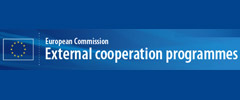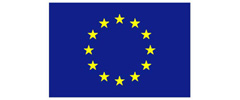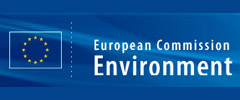Special Gender Session at World Water Forum 5 in Istanbul
Health, Dignity and Economic progress: the way forward to gender equity
17.03.2009 |WECF Press Release

Kenza Kaouakib-Robinson from the UN Water, Gender and Water Taskforce opens the Special Session
Istanbul, March 17, 2009 – Many poor women lack safe access to drinking water and sanitation. Often women are responsible for fetching drinking water from far away sources, or women have to spend a lot of time on caring children and other family members who have fallen ill from a lack of safe sanitation and hygiene. “These indirect costs of a lack to safe water and sanitation are a main economic factor”, said Roger Aertgeerts, regional advisor of WHO Europe at a Session on Gender and Sanition, co-organised by Women in Europe for a Common Future (WECF), a network of over one hundred women and environmental organisations at the opening day of the fifth World Water Forum in Istanbul. “Women thus do also lose this time which they could have used productively, for income generating activities”.
 In many countries the effect of the lack of safe sanitation is different for women – and children – than for men. In most countries school sanitation policies do not take into account differences between boys and girls, “boys can use the bushes, girls in some countries do not go to school for lack of a toilet, for lack of privacy”, explains Kenza Kaouakib-Robinson, of the UN-Water, Gender and Water Taskforce, “which is why we propose to add new indicators to our national monitoring, to assess if school sanitation takes girls needs into account”. Uschi Eid, co-chair of UNSGAB and German member of parliament, added to this “I was proudly shown around a newly build school recently, build with donor funds from my country, but when I asked to see the toilets there were none, this is of course unacceptable, no school should be build without it having separate toilets for girls and boys”.
In many countries the effect of the lack of safe sanitation is different for women – and children – than for men. In most countries school sanitation policies do not take into account differences between boys and girls, “boys can use the bushes, girls in some countries do not go to school for lack of a toilet, for lack of privacy”, explains Kenza Kaouakib-Robinson, of the UN-Water, Gender and Water Taskforce, “which is why we propose to add new indicators to our national monitoring, to assess if school sanitation takes girls needs into account”. Uschi Eid, co-chair of UNSGAB and German member of parliament, added to this “I was proudly shown around a newly build school recently, build with donor funds from my country, but when I asked to see the toilets there were none, this is of course unacceptable, no school should be build without it having separate toilets for girls and boys”.

Ushi Eid, co-chair of UNSGAB
Three ministers of women’s affairs, water and rural development, from Ethiopia, India and Turkey met to discuss with experts and participants during the special session “Health, Dignity and Economic Progress: The Way Forward for Gender Equity”, on Monday 16th of March during the opening of the World Water Forum5 , Istanbul, Turkey. Santha Sheela Nair from India, passionately pleaded for leaving taboos surrounding sanitation behind us as ‘reproductive health is dependent on menstrual health’ therefore we should build toilets for young girls which do not smell, are not very far away from the school building and where young girls do not face the risk of being raped. Her suggestion: ‘build girls’ toilets next to the headmasters’ room!’

Bertrand Charrier former director of the Chirac Foundation added that because of the many deadly illnesses caused by a lack of safe toilets and hygiene, “sanitation is a private issue which concerns the world community”, however, most countries lack funds to provide access to safe sanitation for all school children and all households: “we therefore propose a 1% tax on telecommunication, which would bring the necessary funds of 50 billion”.
The special session was organised by the UN WATER gender and water Taskforce, in cooperation with other UN agencies and civil society organisations[1]. “We know that safe sanitation and hygiene are key for healthy populations, children particularly, but in our rush to reach the Millennium Development Goal on Sanitation, we unfortunately see a focus on purely technical solutions, we are only counting the number of toilets installed, not if they are having the effect on improving health and living standards”, says Charlotte van der Schaaf, of UN Water Capacity Building programme, “only when we do capacity building and hygiene education at the same time, can we achieve lasting improvement, and there, women are the key catalysts, they are the ones able to change hygiene behaviour in their families and communities”
“To move away from the purely technical programmes, we see that full participation of women is a key factor, however, we need national policies which encourage full participation of women, not just as quota-women or observers, but as presidents of water councils and ministers of water” says Linette Vassel, Chair person on Women’s Resources and Outreach Centre, Jamaica.
Technological solutions alone are never a solution, says Elmira Joldosheva from Kyrgyzstan and it is women that are the main “potty trainers”, they can teach their families about improved hygienic behaviour, which is why we have seen a 66% reduction lambliasis, caused by parasites, after a training programme from women to women on hygiene and sanitation improvement.

“Technology is important as well, says Sheela Nair, “rural women tell me they don’t want a toilet if it smells as bad as the public one at the bus stop, and they are often right, in their region, with a lack of water, flush toilets are often not a solution, ecosan toilets which are dry and compost, might be a much better solution”.
The special session concluded that the indicators currently used at national and global level need extension with more gendered and qualified indicators, such as school sanitation criteria which provide enough and safe toilets for girls, and that a number of countries will take the lead in piloting these indicators till 2015, presenting their results for the conclusions on the MDG 7. “This is our last chance to still get the conditions right for achieving the Millennium Development Goal 7 on sanitation”, says Sascha Gabizon, executive Director of Women in Europe for a Common Future, “a Chinese proverb says, with one eye you cannot look straight, it’s the same with men and women, we need both their input equally to achieve our aims of safe sanitation, health and dignity for all”.
Sheela Nair, Secretary of State of the Ministry of Rural Development India, concluded, we should tell our men, “if you love your wife and daughter, don’t give them sweets or new clothes, give them a toilet”.
[1] United Water Decade Programme on Capacity Development, Women in Europe for a Common Future – WECF, IUCN, Stockholm Environment Institute, Ecosanres, Wateraid, Gender Water Alliance, IRC, Women for Water and Soroptomists International.
Related News
Together for sustainable sanitation and water security worldwide!
Stockholm, 26-31 Aug 2018: WECF participated in the World Water Week 2018 to further support the worldwide implementation of SDG 6
01.09.2018
Successful first action against algae overgrowth in the Blue Lake in Ukraine
Using fish to fight the overgrowth of algae
18.12.2017
English summary of WECF publication on pesticides in surface waters in Dutch province Drenthe
For our non Dutch readers we now publish an English summary of the publication about pesticide pollution in the surface waters of Drenthe
09.11.2017
WECF participated at WASH symposium in Uganda
From June 20th-23rd, a WASH symposium was held in Kampala, Uganda. WECF participated in cooperation with our local partner organization ARUWE and we presented our water, sanitation and energy projects in Uganda.
23.06.2016
We've made it - overwhelming success of our crowdfunding campaign!
In the last 4 weeks we run a crowdfunding campaign to collect 4.000€ to finance 15 Biogas Toilets for deprived families in Uganda. Thanks to your great support we can now build even more!
22.06.2016






































